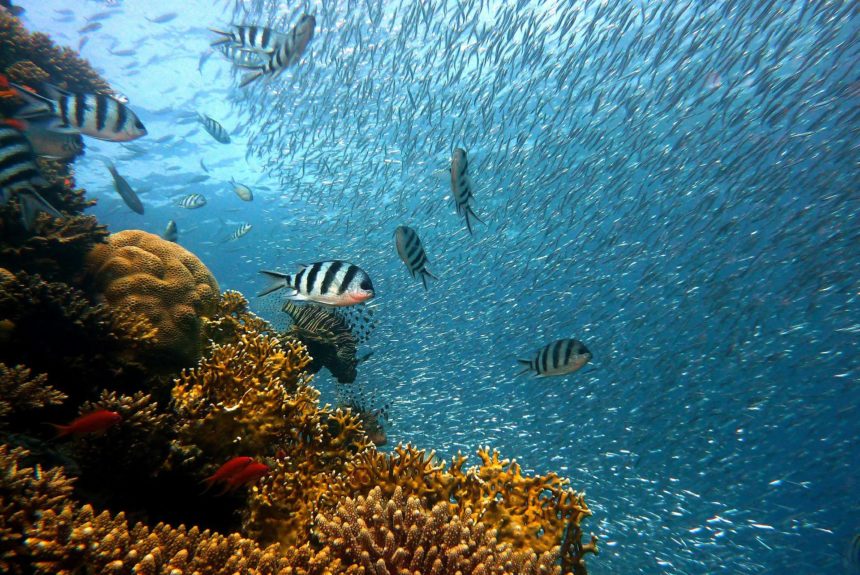What covers more than 70 percent of our planet? Our oceans! Anything that takes up that much surface area deserves recognition and every June 8th, recognition is given through World Ocean Day. This date serves as an important reminder that environmental problems do not just plague the other 30 percent of our planet—our oceans are afflicted with them too. One of the most pressing problems besetting our oceans is the degradation of one critical underwater ecosystem: coral reefs. Enter Mission: Iconic Reefs.
>>>READ: Reef Re-Growing Breakthrough Seeks to Reproduce Lost Coral Reefs
Mission: Iconic Reefs is an initiative spearheaded by the National Oceanic and Atmospheric Administration (NOAA). Their goal is to restore seven coral reef sites in Florida Keys National Marine Sanctuary. NOAA explains why:
“Losing coral reefs could result in cascading effects to the Florida Keys region’s economy and culture, which are firmly rooted in the local marine ecosystem. This unique habitat generates billions of dollars in recreation and tourism for the state of Florida. Healthy coral reefs provide habitat for recreationally and commercially important fish and a myriad of other animals, including spiny lobster and sea turtles.”
The impact of coral reef degradation is not isolated to Florida. As previously noted for C3, these ecosystems generate $30 billion in annual global economic activity and support 25 percent of all marine life found in our oceans. Coral reefs also protect coasts from erosion and flooding. But these reefs are fragile. Over the past few decades, 50 percent of all coral reefs have died, and without proper protection and restoration, 90 percent of the planet’s reefs could die by 2050, resulting in dire economic and environmental consequences.
Small-scale restoration efforts by localities and a variety of organizations have launched around the world to restore coral reefs, and these efforts are seeing great success. Florida itself is a world leader in small-scale efforts. But Mission: Iconic Reefs was established due to the crisis state of Florida’s reefs. Over the past 40 years, 90 percent of the coral that previously existed has died off. A broader effort was deemed necessary to turn the tide and help these reefs see a brighter future.
NOAA has partnered with local wildlife agencies, alongside academic and nonprofit organizations such as United Way, the University of Florida, The Nature Conservancy, Coral Restoration Foundation, and the Florida Aquarium. These partners have worked together to develop a lengthy restoration process specifically for these reefs that includes removing nuisance species before growing and installing coral over a few different stages. While driven by NOAA, funding has poured in from sources across the world to support the project.
>>>READ: One Company Restoring Coral To Combat Climate Change’s Coastal Impact
Earlier this year, project priorities for 2022 through 2025 were announced. The progress of restoration stands as the most prominent, with the partnership seeking to complete 75 percent of the initial phase of coral installation by 2025. Priorities also include developing a genetic management plan for coral growth, creating a better framework for volunteer engagement, and equipping the team to better monitor reefs and manage important data.
Americans associate Florida with the ocean, and now, through this initiative, seven of the state’s most iconic coral reefs are on their way toward full health. With partnerships like Mission: Iconic Reefs, the tide is beginning to turn for the future of coral. A brighter future for these reefs is definitely worth celebrating this World Ocean Day.
Kelvey Vander Hart is a native Iowan, a member of the American Conservation Coalition, and a communications specialist at Reason Foundation.
The views and opinions expressed are those of the author’s and do not necessarily reflect the official policy or position of C3.
